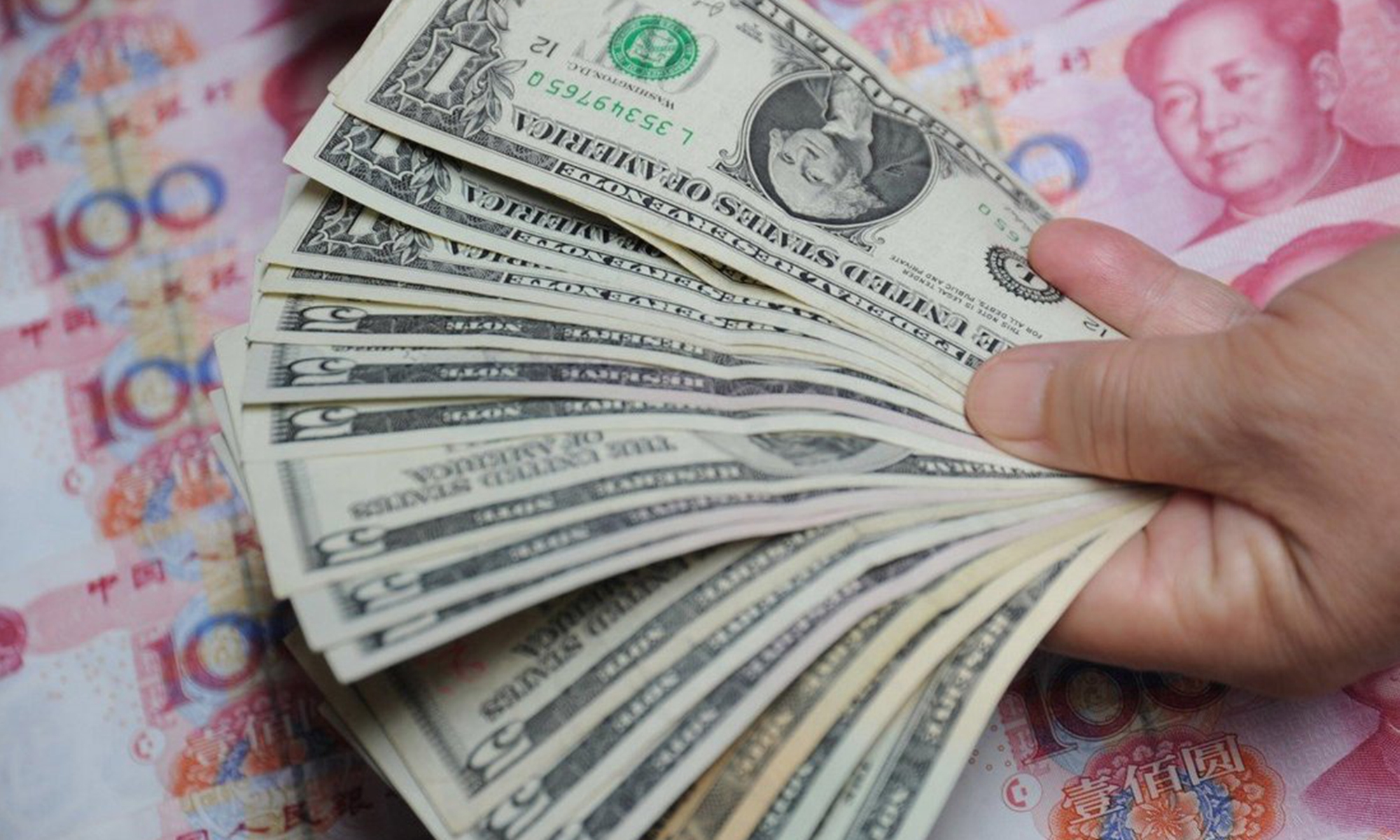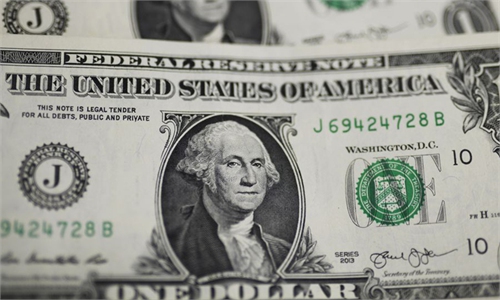Rising Dollar Index main reason for China’s forex reserve changes, yuan to remain firm in H2 despite Fed tightening: regulator
Yuan to remain firm in H2 despite Fed tightening

Foreign exchange Photo:Xinhua
The major reason for the change in China's foreign exchange reserves last month was the rising US Dollar Index, leading to the decrease in the amount after conversion into dollars, China's foreign exchange regulator said on Friday, noting that with the recovery of the domestic economy in the second half, the yuan will stabilize more obviously as the dollar strengthens.
The country's foreign exchange reserves - the world's largest - fell $56.5 billion to $3.071 trillion in June, compared with $3.113 trillion forecast by a Reuters poll of analysts and $3.128 trillion in May.
Wang Chunying, deputy head of the State Administration of Foreign Exchange (SAFE), told a press conference discussing the country's foreign exchange situation in the first half on Friday that the drop in June reserves mainly reflected valuation effects, as the US dollar rose and global asset prices fell sharply amid worries over inflation and the growth outlook.
Meanwhile, Chinese mainland's holdings of US Treasuries, which accounted for about 30 percent of its total foreign reserves, dropped to $980.8 billion in May, which was the first time for it to drop below $1 trillion since May 2010, according to data released by the US Department of the Treasury on Monday.
The largest holder of US debt Japan also recorded decreasing holdings recently.
"There is no need to over-interpret the changes in Chinese investors' holdings of US debt," said Guan Tao, BOC International's global chief economist and a former official at the SAFE, indicating that the cut in holdings is more of a technical move in coping with potential risks.
Guan noted that diversification of dollar-denominated assets in China's foreign exchange reserves started long ago.
According to the data disclosed in the annual report of the SAFE, the share of China's dollar reserve assets fell from 79 percent at the end of 1995 to 59 percent by the end of 2016.
Wang, the SAFE official, noted the volatility in the bond market, whether in developed or emerging economies including the US bond market, is a natural phenomenon, while saying China's absorption of bond investment is relatively high and volatility also smaller than many economies in the world.
Looking forward in the second half, Wang said China is confident of resolving the impact of monetary policy tightening by the US Federal Reserve, and the Chinese regulator will closely monitor the pace of Fed policy adjustments, which could affect global financial markets.
Investors are expecting the Fed to deliver another 75-basis-point rate hike at its policy meeting next week. The Fed's aggressive monetary tightening pace has stoked market worries that a widening monetary divergence could trigger capital outflows and yuan depreciation.
The unconventional monetary policy adjustments of the US Federal Reserve are a very important external influence on cross-border capital flows. At present, China is more confident and better equipped to effectively resolve the impact of the Fed's monetary policy adjustments on China's cross-border capital flows, Wang noted.
The yuan has weakened 6 percent against the US dollar so far this year, but Wang said it would remain stable at reasonable and balanced levels in the second half.
"Judging from recent performance, although the dollar has strengthened further, the yuan's stability among other major currencies has become more prominent as the domestic economy picks up," she said.
As of Thursday, the Dollar Index had risen by more than 11 percent cumulatively so far this year, and the euro, pound and yen have depreciated by 10-17 percent against the dollar, compared with the yuan's about 6 percent depreciation.
The rapid recovery of the national economy, stable supply and industrial chains, strong resilience of the nation's foreign trade and foreign investment, as well as stable market expectations, will support the yuan's exchange rate, according to Wang.

